 Location of Yemen (dark green) | |
| Medicinal | Illegal |
|---|---|
| Recreational | Illegal |
Cannabis in Yemen is illegal. Cannabis is less common in Yemen than khat. [1]
 Location of Yemen (dark green) | |
| Medicinal | Illegal |
|---|---|
| Recreational | Illegal |
Cannabis in Yemen is illegal. Cannabis is less common in Yemen than khat. [1]
Cannabis is listed as one of the agricultural products of Yemen during the Rasulid dynasty (1229-1454). [2]
Yemen is Saudi Arabia's principal source of drugs. [3]
In 2007, Yemen was the fifteenth-most prolific producer of cannabis resin, comprising 0.4% of seized cannabis globally. [4]

The Arabian Peninsula, or Arabia, is a peninsula in West Asia, situated northeast of Africa on the Arabian Plate. At 3,237,500 km2 (1,250,000 sq mi), comparable in size to India, the Arabian Peninsula is the largest peninsula in the world.
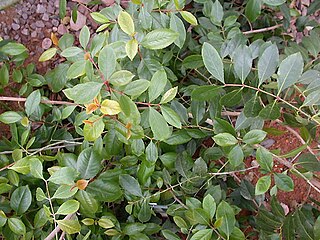
Khat or qat, Catha edulis is a flowering plant native to eastern and southeastern Africa. It has a history of cultivation originating in the Harar area and subsequently introduced at different times to countries nearby in East Africa and Southern Arabia, most notably Yemen. Cultivated by farmers, its leaves are sold on the market to be chewed as a recreational stimulant. The world's largest consumers are Eastern Africans, particularly Somalis, and nearby Yemen; with the largest producers/exporters being Ethiopia and Kenya,
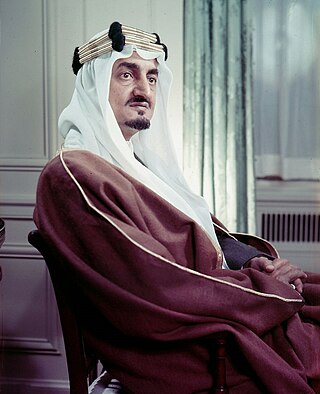
Faisal bin Abdulaziz Al Saud was a Saudi Arabian statesman and diplomat who was King of Saudi Arabia from 2 November 1964 until his assassination in 1975. Before his ascension, he served as Crown Prince of Saudi Arabia from 9 November 1953 to 2 November 1964, and he was briefly regent to his half-brother King Saud in 1964. He was prime minister from 1954 to 1960 and from 1962 to 1975. Faisal was the third son of King Abdulaziz, the founder of modern Saudi Arabia.

Saudi Arabia, officially the Kingdom of Saudi Arabia (KSA), is a country in West Asia and the Middle East. It covers the bulk of the Arabian Peninsula and has a land area of about 2150000 km2, making it the fifth-largest country in Asia and the largest in the Middle East. It is bordered by the Red Sea to the west; Jordan, Iraq, and Kuwait to the north; the Persian Gulf, Qatar and the United Arab Emirates to the east; Oman to the southeast; and Yemen to the south. Bahrain is an island country off its east coast. The Gulf of Aqaba in the northwest separates Saudi Arabia from Egypt and Israel. Saudi Arabia is the only country with a coastline along both the Red Sea and the Persian Gulf, and most of its terrain consists of arid desert, lowland, steppe, and mountains. The capital and largest city is Riyadh; the kingdom also hosts Islam's two holiest cities of Mecca and Medina.
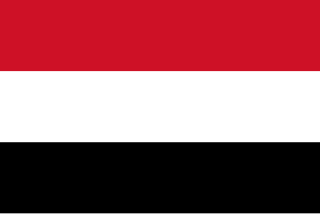
Yemen, officially the Republic of Yemen, is a sovereign state in West Asia. Located in the southern Arabian Peninsula, it borders Saudi Arabia to the north, Oman to the northeast, and the Indian Ocean to the south, sharing maritime borders with Eritrea, Djibouti and Somalia across the Horn of Africa. Covering roughly 528,000 square kilometres, with a coastline of approximately 2,000 kilometres, Yemen is the second largest country on the Arabian Peninsula. Sanaa is its constitutional capital and largest city. Yemen's estimated population is 34.7 million, mostly Arab Muslims. It is a member of the Arab League, the United Nations, the Non-Aligned Movement and the Organisation of Islamic Cooperation.
Sectarianism is a debated concept. Some scholars and journalists define it as pre-existing fixed communal categories in society, and use it to explain political, cultural, or religious conflicts between groups. Others conceive of sectarianism as a set of social practices where daily life is organised on the basis of communal norms and rules that individuals strategically use and transcend. This definition highlights the co-constitutive aspect of sectarianism and people’s agency, as opposed to understanding sectarianism as being fixed and incompatible communal boundaries.

Socotra or Saqatri is an island of Yemen in the Indian Ocean. Lying between the Guardafui Channel and the Arabian Sea and near major shipping routes, Socotra is the largest of the four islands in the Socotra archipelago. Since 2013, the archipelago has constituted the Socotra Governorate.

The Arab states of the Persian Gulf or the Arab Gulf states refers to a group of Arab states bordering the Persian Gulf. There are seven member states of the Arab League in the region: Bahrain, Kuwait, Iraq, Oman, Qatar, Saudi Arabia, and the United Arab Emirates. Yemen is bound to the six countries of the Gulf Cooperation Council, based on history and culture.
This is a timeline of Yemeni history, comprising important legal and territorial changes and political events in Yemen and its predecessor states. To understand the context to these events, see History of Yemen. See also the List of rulers of Saba and Himyar, the list of Imams of Yemen and the list of presidents of Yemen.

The Unification of Saudi Arabia was a military and political campaign in which the various tribes, sheikhdoms, city-states, emirates, and kingdoms of most of the central Arabian Peninsula were conquered by the House of Saud, or Al Saud. Unification started in 1902 and continued until 1932, when the Kingdom of Saudi Arabia was proclaimed under the leadership of Abdulaziz, known in the West as Ibn Saud, creating what is sometimes referred to as the Third Saudi State, to differentiate it from the Emirate of Diriyah, the First Saudi State and the Emirate of Nejd, the Second Saudi State, also House of Saud states.

The 1964 Arab League summit was the first summit of the Arab League, held in Cairo, Egypt, on 13–16 January 1964 and attended by all fourteen of the then member states: United Arab Republic (Egypt), Iraq, Lebanon, State of Palestine, Syria, Saudi Arabia, Jordan, Yemen Arab Republic, Libya, Sudan, Morocco, Tunisia, Kuwait and Algeria.
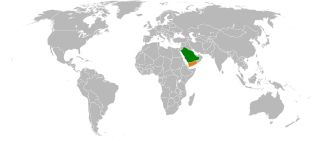
Saudi Arabia and Yemen relations refers to the current and historical relationship between the neighbouring sovereign states of Saudi Arabia and Yemen. The two countries at one time did enjoy good relations and closely cooperated in military, economic and cultural issues. Now because of the ongoing Yemeni Civil War and the realignments of power in the Middle East with the emergence of al-Qaeda and the radicalization of some factions of Islam, Saudi Arabia has led a military intervention into Yemen.

The use and possession of cannabis is strictly illegal in the Kingdom of Saudi Arabia. Use and possession for personal use of any kind of recreational drugs is usually punishable by imprisonment if caught. For foreign citizens, there would generally be more leniency. Imprisonment for personal use of cannabis could go up to 1 to 6 months in prison with or without whippings for first time offenders. Imprisonment for drug dealing can range between 2 and 10 years in prison with whippings. Repeated dealing and or smuggling of large amounts of drugs usually result in harsher time in prison or can even include the death penalty, although recent executions are very rare. Foreigners who use cannabis could be deported.
Cannabis in the United Arab Emirates is illegal. Trafficking has a minimum five year sentence. Use and possession has a minimum three month sentence, and may result in deportation of expats.
The list includes and details significant events that occurred in the global history of national-level implementations of, or changes made to, laws surrounding the use, sale, or production of the psychoactive drug cannabis.
Cannabis in Jordan is illegal. In 2018, Anwar Tarawneh, Director of the Anti-Narcotics Department (AND) reported that "marijuana is the most consumed drug in Jordan", with the AND seizing 1.5 tonnes of cannabis that year. As Jordan is a signatory to the 1961 United Nations Single Convention on Narcotic Drugs.
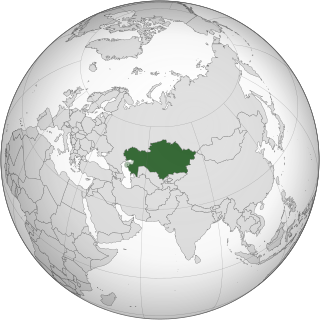
Cannabis in Kazakhstan is illegal.
Cannabis in the Republic of the Congo is illegal. Cannabis is known locally as mbanga.
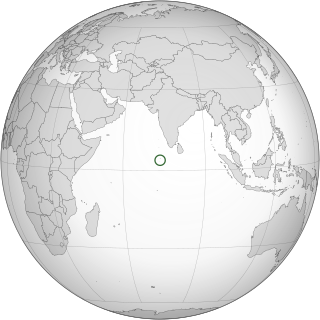
Cannabis is illegal in the Maldives.